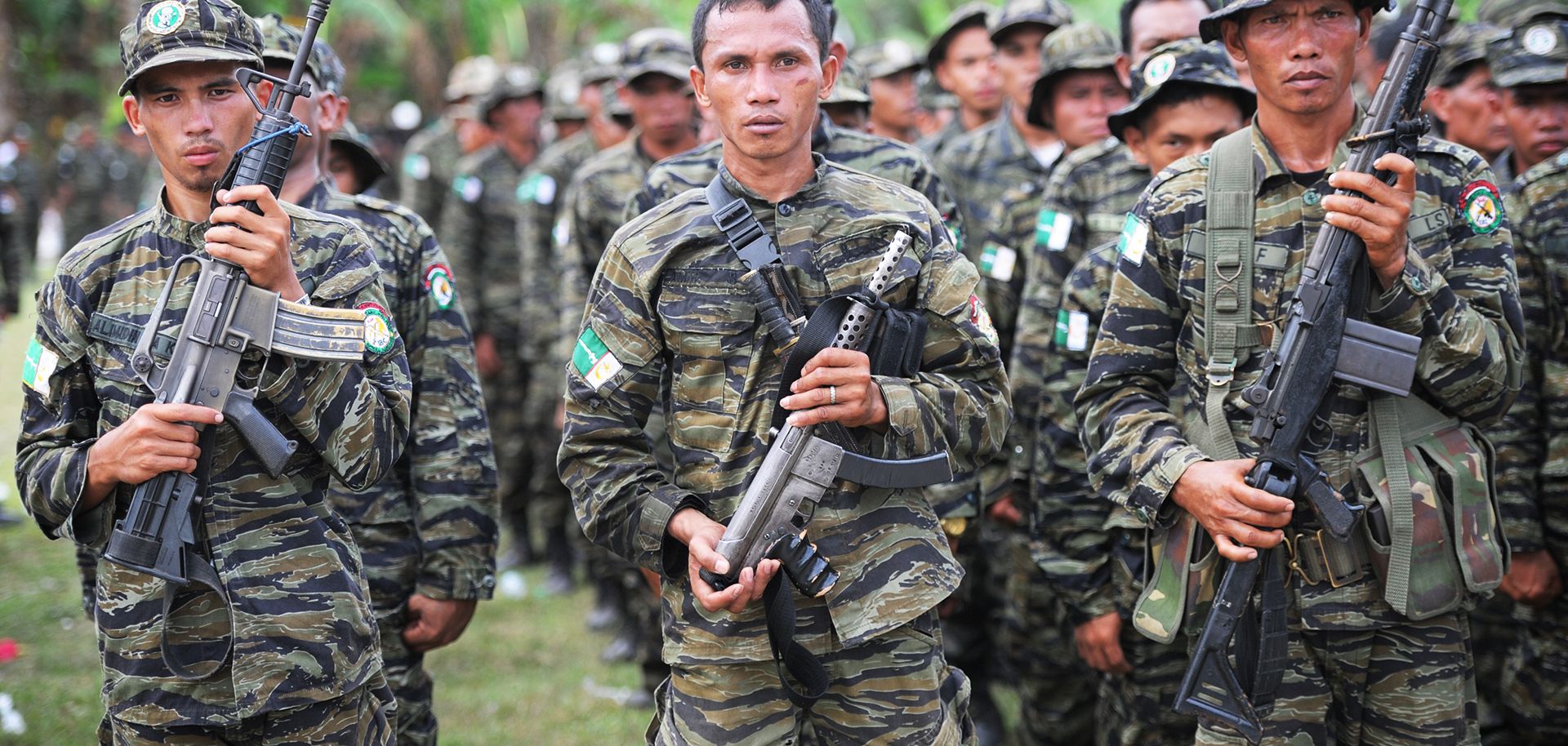ASSESSMENTS
In the Southern Philippines, the Peace Process Stumbles Forward
Sep 14, 2014 | 13:11 GMT

(TED ALJIBE/AFP/Getty Images)
Summary
Peace is not imminent in the predominantly Muslim areas of the southern Philippines, but government efforts to stabilize the archipelagic region took a major step forward this week. On Sept. 10, Philippine President Benigno Aquino III submitted to Congress a draft law creating a new autonomous government for the southern region, to be known as Bangsamoro, ending a tense three-month period of deliberations with rebel negotiators over the law's finer details. The proposed Bangsamoro Basic Law is the product of nearly two decades of violence-marred negotiations between the government and Moro rebels. It aims to address some of the underlying drivers of the violence by giving the region a greater share of resource and tax revenues, in addition to a largely independent parliament, police force and civil judiciary.
The draft still faces steep legislative and political hurdles, as well as lingering questions about its compliance with the Philippine Constitution. Even if fully implemented, the law wouldn't completely pacify the restive region, which is home to numerous other militant groups, clan-based blood feuds and entrenched criminal networks that will continue to deter the development of the region's vast economic potential. Nonetheless, mounting economic and political incentives, a decline in militant capabilities, and Manila's fundamental geopolitical imperatives will continue to generate momentum for a solution.
Subscribe Now
SubscribeAlready have an account?
